September 5, 2025 – Farm Work, Friday Dharma Q&A
Hello. Today, Sunim worked on the farm at Dubuk Jungto Retreat Center and held a live Friday Dharma Q&A in the evening.
At 3 AM, Sunim left Seoul and headed to Dubuk Jungto Retreat Center. After driving for 3 hours and 30 minutes, he arrived at the retreat center at 6:30 AM. After a simple breakfast, he toured the vegetable garden.
“We can plant napa cabbage in this field, radishes in that field, and cilantro and lettuce in the back field.”
After touring the fields, Sunim took a rest due to a migraine.
To avoid the hot midday sun, farm work began at 4 PM. First, Sunim started planting napa cabbage seedlings. He watered the ground thoroughly and carefully planted each seedling one by one, making sure not to damage the roots. After planting, he watered them generously again.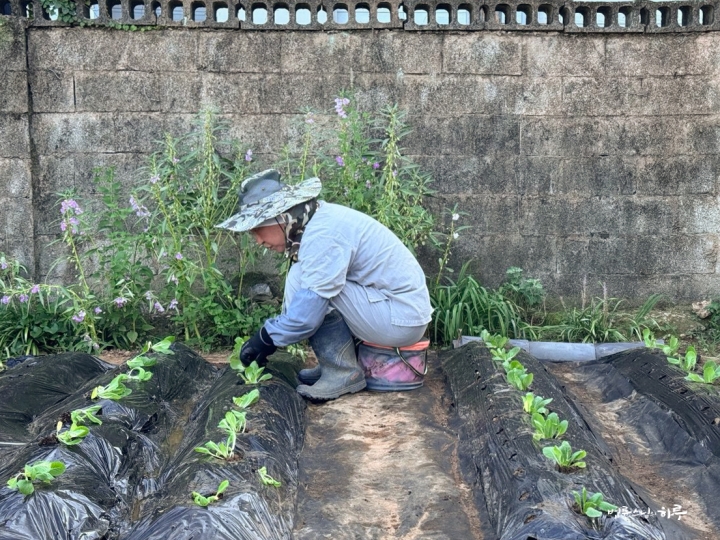

Next, he planted radish seeds. He brought the radish seeding machine used by the farming team and tried using it.
“Are the seeds coming out properly?”
Since it didn’t seem like the seeds were coming out, he tested the machine on bare ground and found that no seeds were coming out at all. In the end, he planted the radish seeds one by one by hand.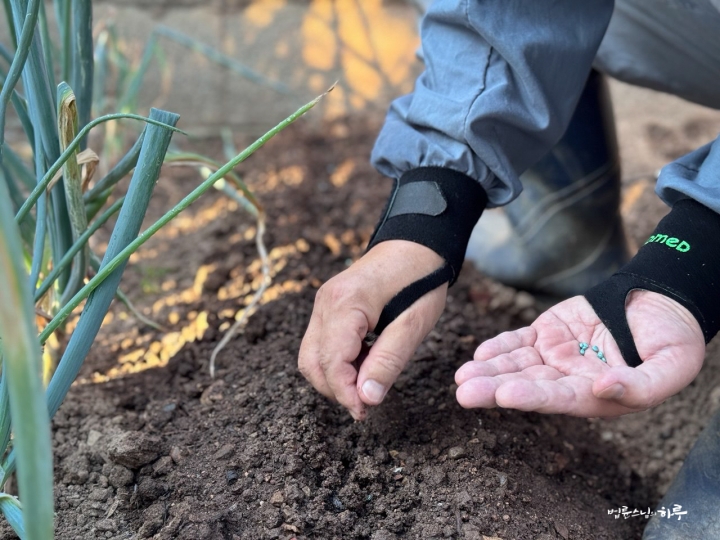
He then sowed cilantro seeds and finally planted lettuce seedlings as well. Working continuously for 2 hours, he completed all the planned tasks. Though drenched in sweat from head to toe, Sunim smiled brightly as he looked around the fields.

After washing up briefly and having dinner, he also toured the greenhouse and rice paddies.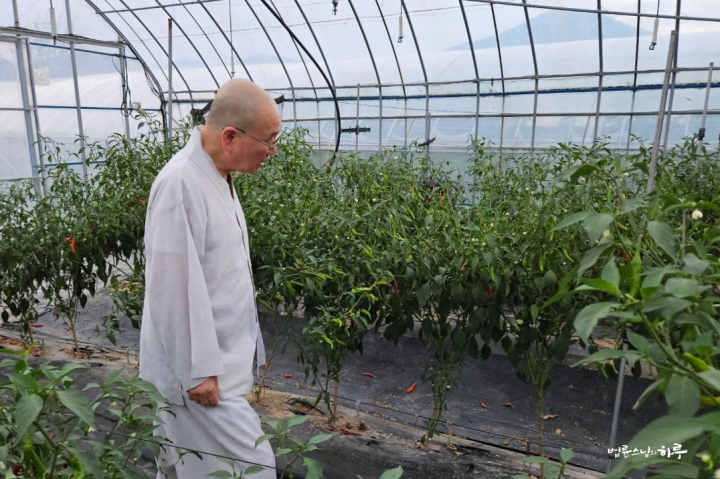

As the sun set, Sunim headed to the broadcasting room at Dubuk Retreat Center. From 7:30 PM, he began the live Friday Dharma Q&A.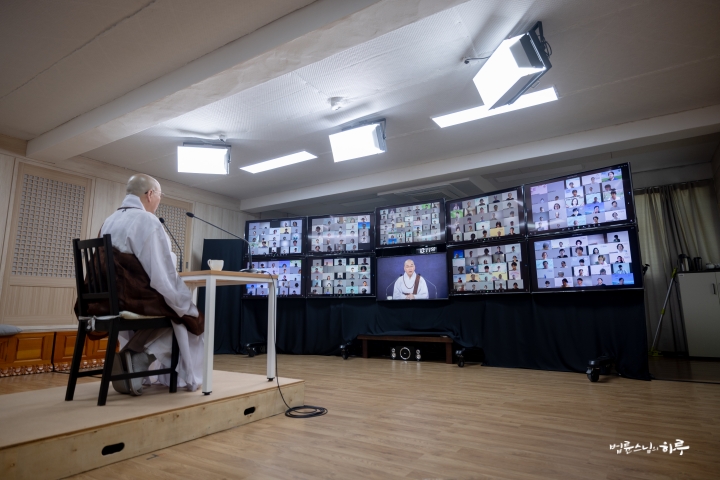
With about 3,900 people connected to the YouTube live stream, Sunim gave his opening remarks.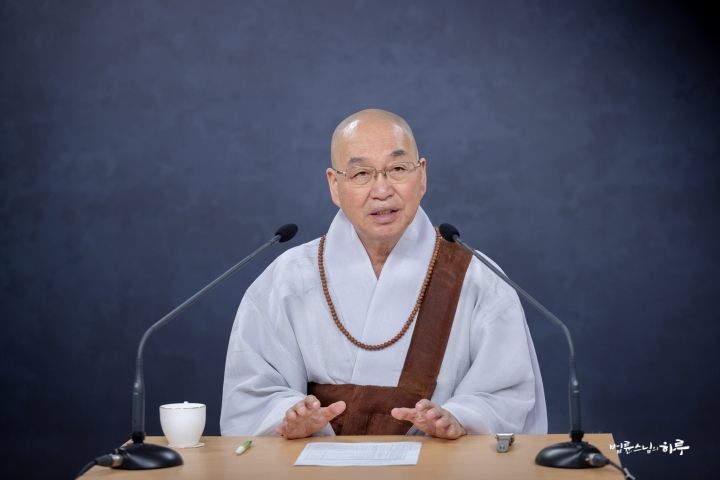
“Over the past two weeks, I visited cities with large Korean communities in the western regions of North America and Oceania to hold Dharma Q&A sessions. Originally, I was scheduled to hold a Dharma Q&A in Indonesia today, but due to political instability in Indonesia, with demonstrations and some violent incidents occurring in downtown Jakarta, the lecture was canceled. So after finishing my lecture in Perth, Australia, I returned directly to Seoul yesterday evening without stopping in Indonesia. Early this morning, I went down to Gyeongju and planted fall kimchi cabbage in the vegetable garden. I also sowed fall radish seeds and cilantro seeds, which we eat a lot at the temple. Fall cabbage grows well in cool weather, but it’s still as hot as midsummer, so the planted cabbage might die and we might have to replant several times. Since I’ll be going to Europe again the day after tomorrow to tour various cities for lectures, and then visit several Southeast Asian countries, next week’s Friday Dharma Q&A will likely be held from Europe.”
He then had conversations with those who had submitted questions in advance. Four people pressed the raise hand button and asked Sunim questions. One of them felt guilty because his feelings were shaken by his girlfriend’s scars and asked Sunim for advice on how to truly love her.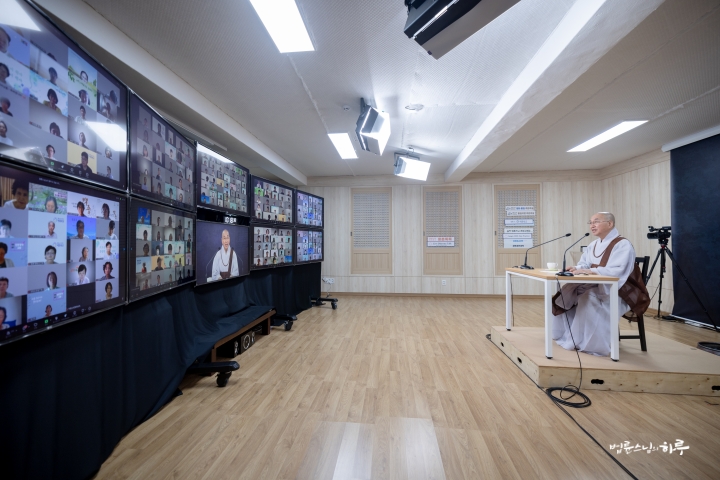
Questions continued to follow.
A supervisor I admire and like promised to bring me along when they changed jobs so we could work together. As this promise keeps getting delayed, I feel helpless and depressed. What should I do?
My sister who lives alone has worsening dementia and calls me for dozens of minutes talking about difficult childhood memories. I’m finding it mentally hard to cope. What should I do?
I’m a Chinese woman who married into Korea 10 years ago. I feel guilty whenever I think of my father’s painful wish for me to return to China with my husband. What should I do?
I feel guilty because my heart wavers due to my girlfriend’s scar. How can I truly love her?
After finishing the dialogue, Sunim gave closing remarks.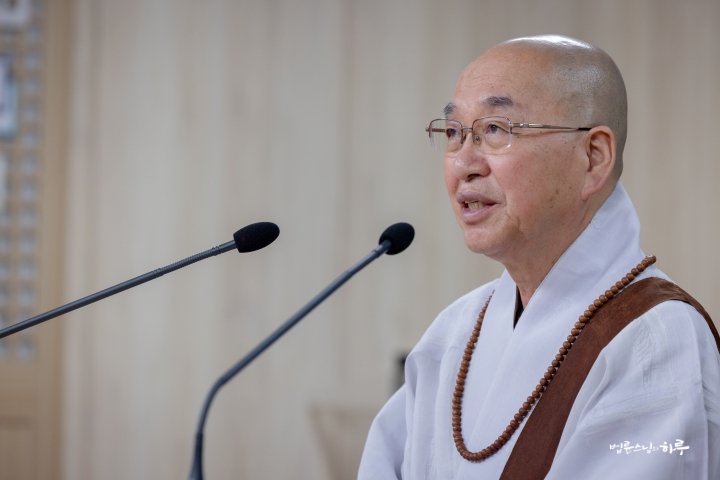
“September is the enrollment season for Jungto Dharma School. I hope many of you who are currently watching Dharma Q&A on YouTube will enroll during this enrollment season. After the enrollment season ends, you can participate in the one-month Happiness School program. Jungto Dharma School is a 5-month course where you systematically study the basic principles of how the mind works that I discuss in Dharma Q&A, while Happiness School is a shorter program that teaches, in a lighter way, how to have a happy mindset. Jungto Dharma School has almost no religious rituals – though being a Buddhist school, it has about 10 percent. Happiness School has absolutely no religious rituals or terminology, making it accessible to everyone. See you next week.”
After finishing the dialogue, it was 9 PM. The live broadcast ended with the promise of meeting again next time.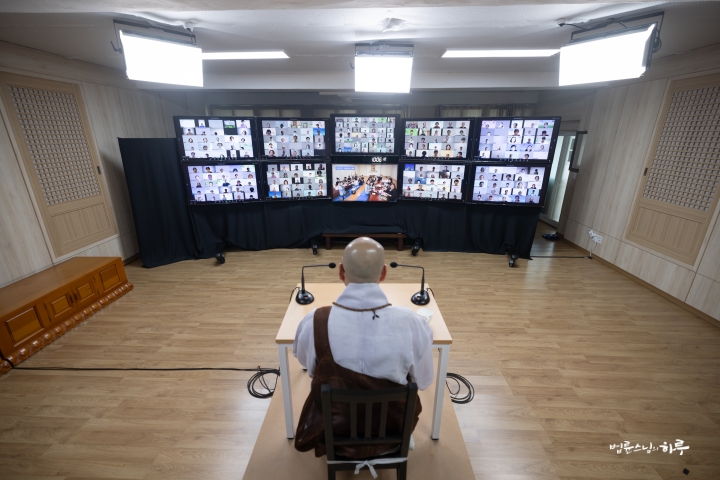
Tomorrow, Sunim leave for Seoul at 3 AM, hold the Baekjung Prayer Closing Ceremony in the morning, and meet with guests visiting the Peace Foundation in the afternoon.





